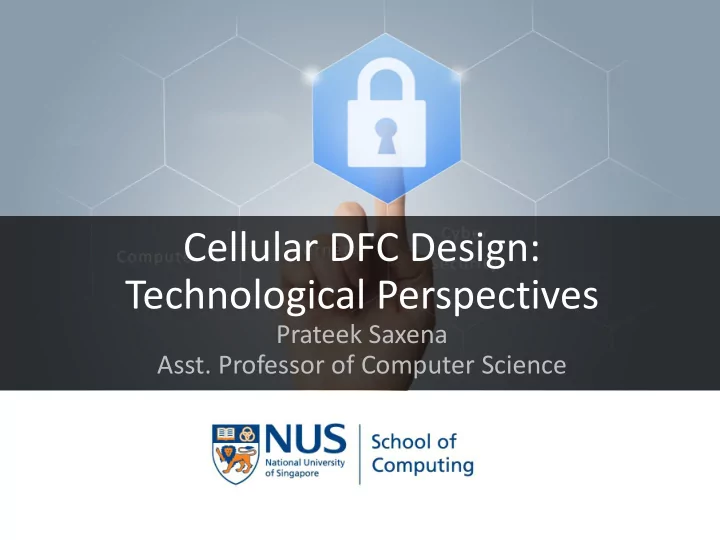

Cellular DFC Design: Technological Perspectives Prateek Saxena Asst. Professor of Computer Science
The Premise: Decentralized Digital Payments
But, Why? • Resilience, Auditability and Reconciliation • “Tokenization”: Improves Liquidity, Fractionalization • Levelling the playing field
Better Resilience
Better Resilience: No Single Point of Failure Centralized Operator De-Centralized Operators P1 P1 P6 P6 P2 P2 P5 P3 P5 P3 P4 P4
Tokenization 30 Million Dollar Real Estate Tokenized – Oct 2018
Tokenization • Fractional Ownership • Liquidity • Processing
Leveling the Playing Field: Access to Capital / Services
Technological Advances
Blockchains: Resilience, Reconciliation, Tokenization ….. Users Blockchains
From Payments To General-Purpose Computing Over 5 million decentralized apps!
Smart Contracts ….. Users ….. Smart Contracts (Interacting agents) Blockchains
Interoperability & Atomicity Atomic Swaps Flight Booking Hotel Booking Delivery versus Payment Payment versus Payment PROJECT UBIN – SGX, DELOITTE, ANQUAN, MAS (2018)
Scalability & Security • Scalability (2015) – 10 transactions per second Resilience Scalability • Scalability (2018): – 10,000 transactions per second (e.g. Zilliqa) • High Resilience: Decentralization – 20% - 50% fail. tolerance • Latency at high decentralization: – 5-60 seconds
Privacy & Information Controls • Allow information owners to control: Blockchain TEE – Who share with – What computation can be done • Solutions: – Cryptographic methods – Trusted Execution Environments (TEEs)
Enabling A New Experience • Resiliency and Auditability of Information sources • Real-time Reconciliation • Programmable trust and actions • Better speech & natural language Interfaces • Smarter Analytics • Strong information Controls • Low barriers to Innovation
Questions?
Recommend
More recommend